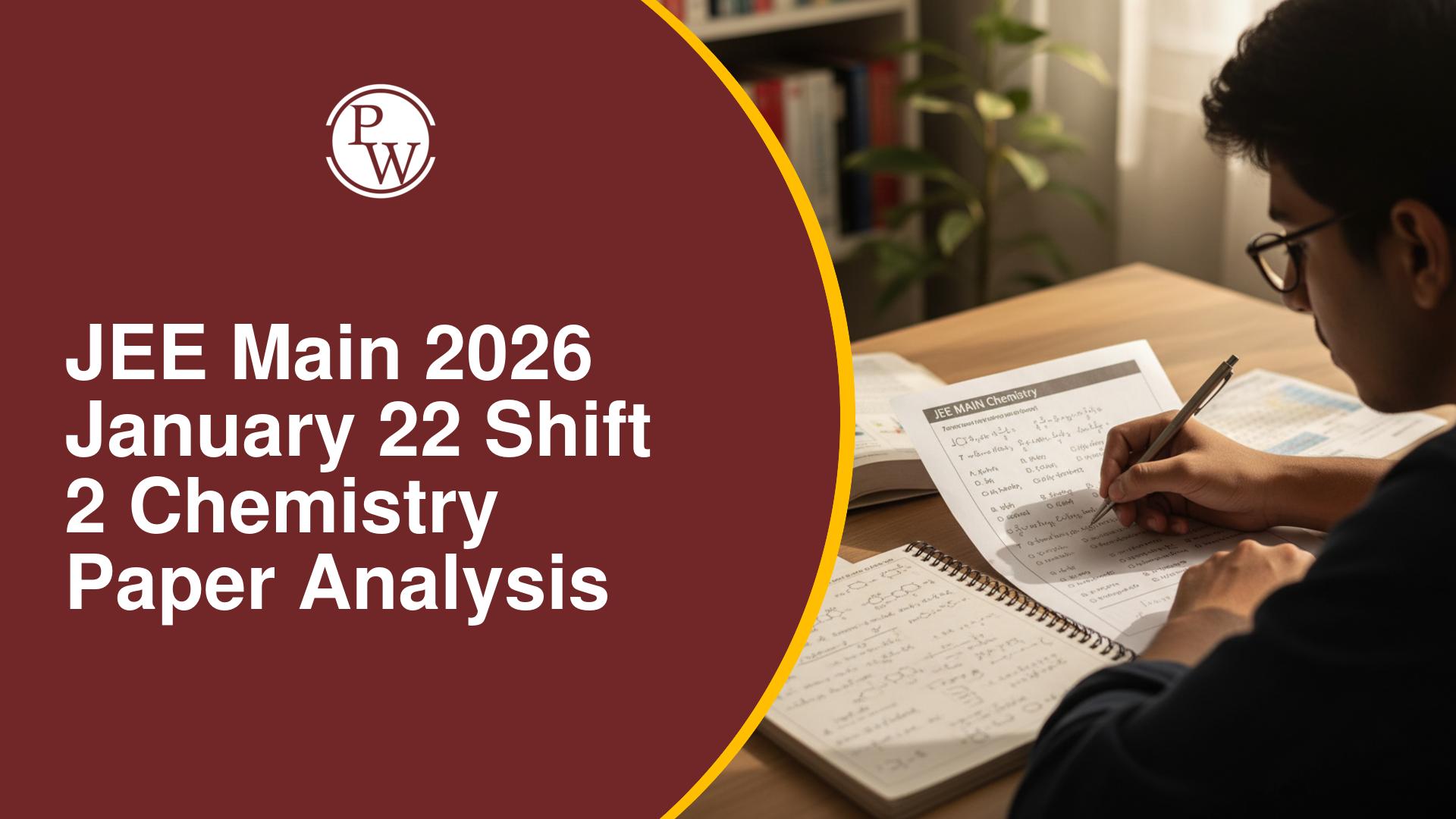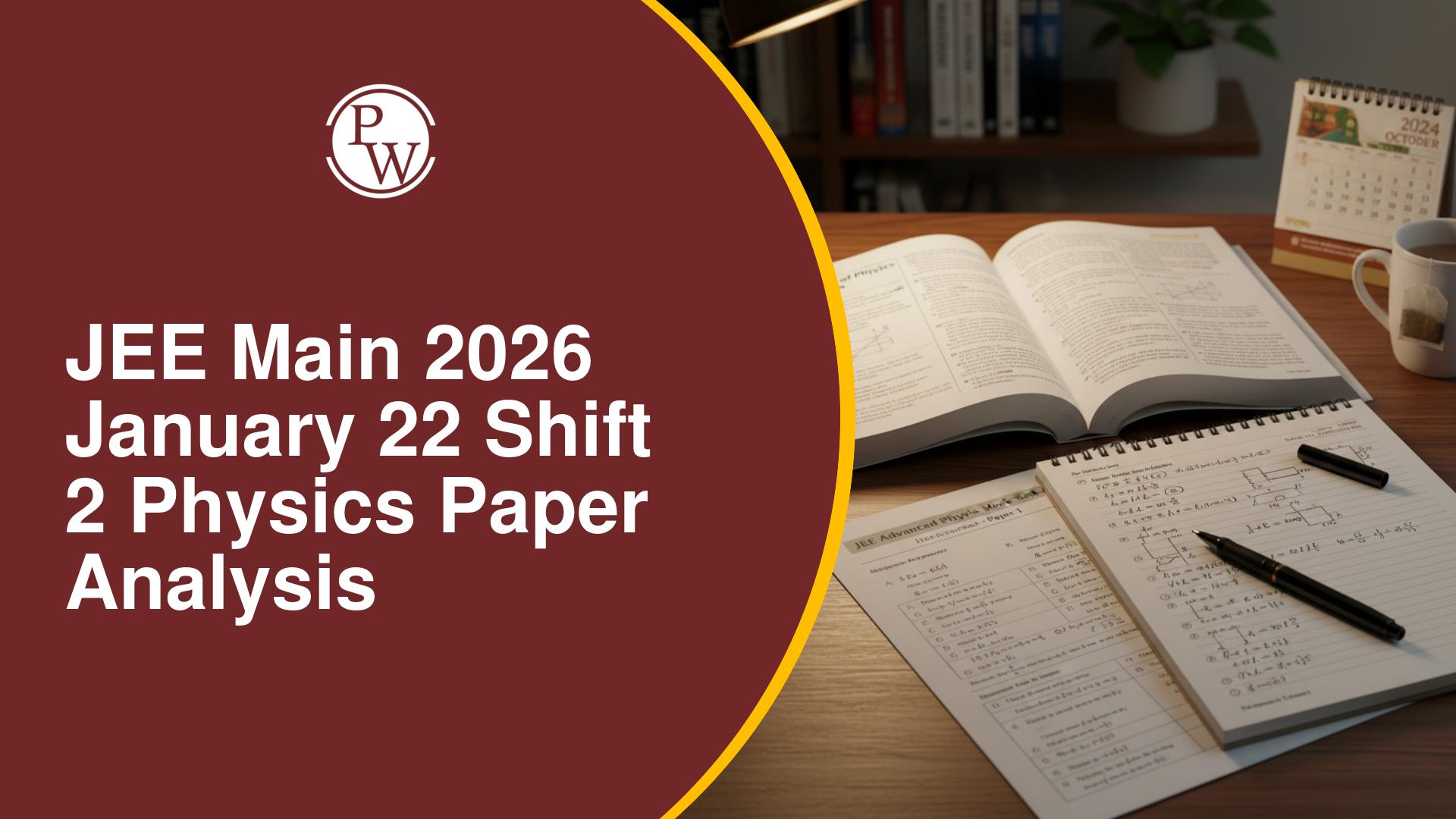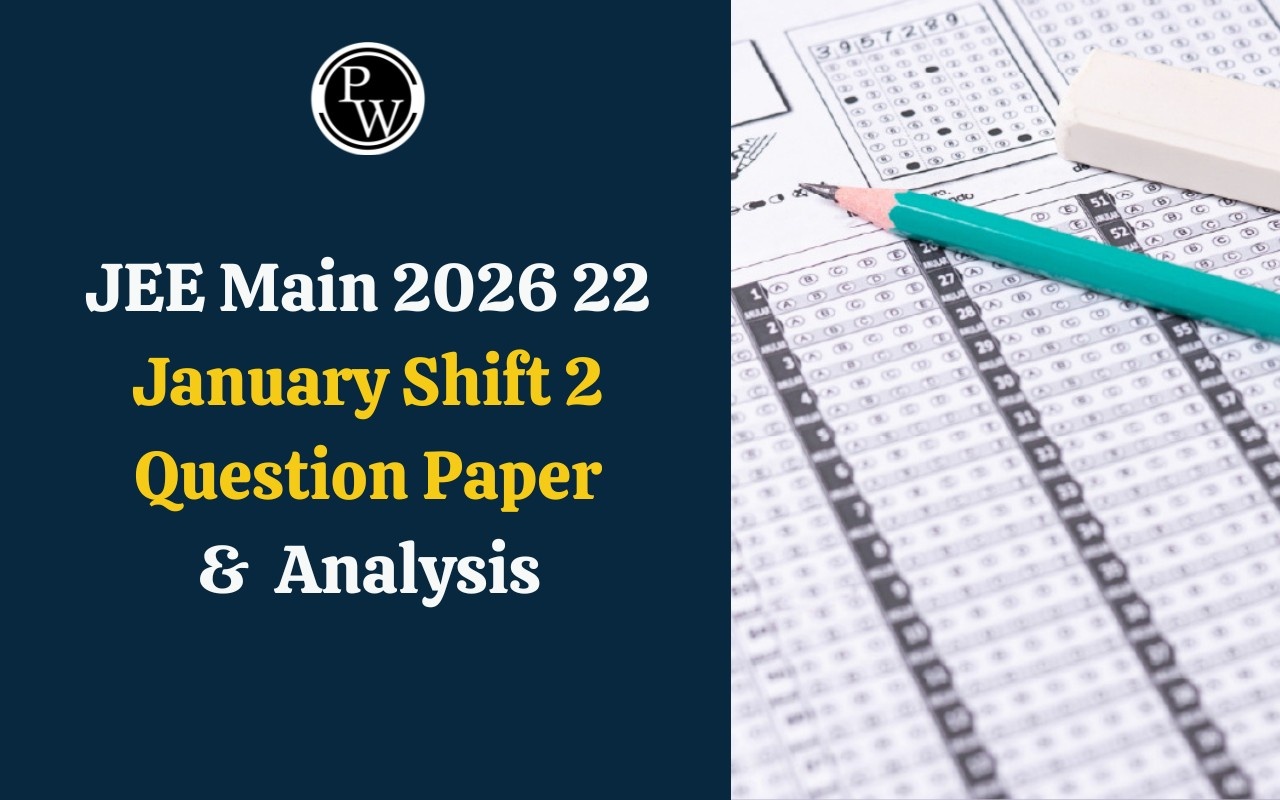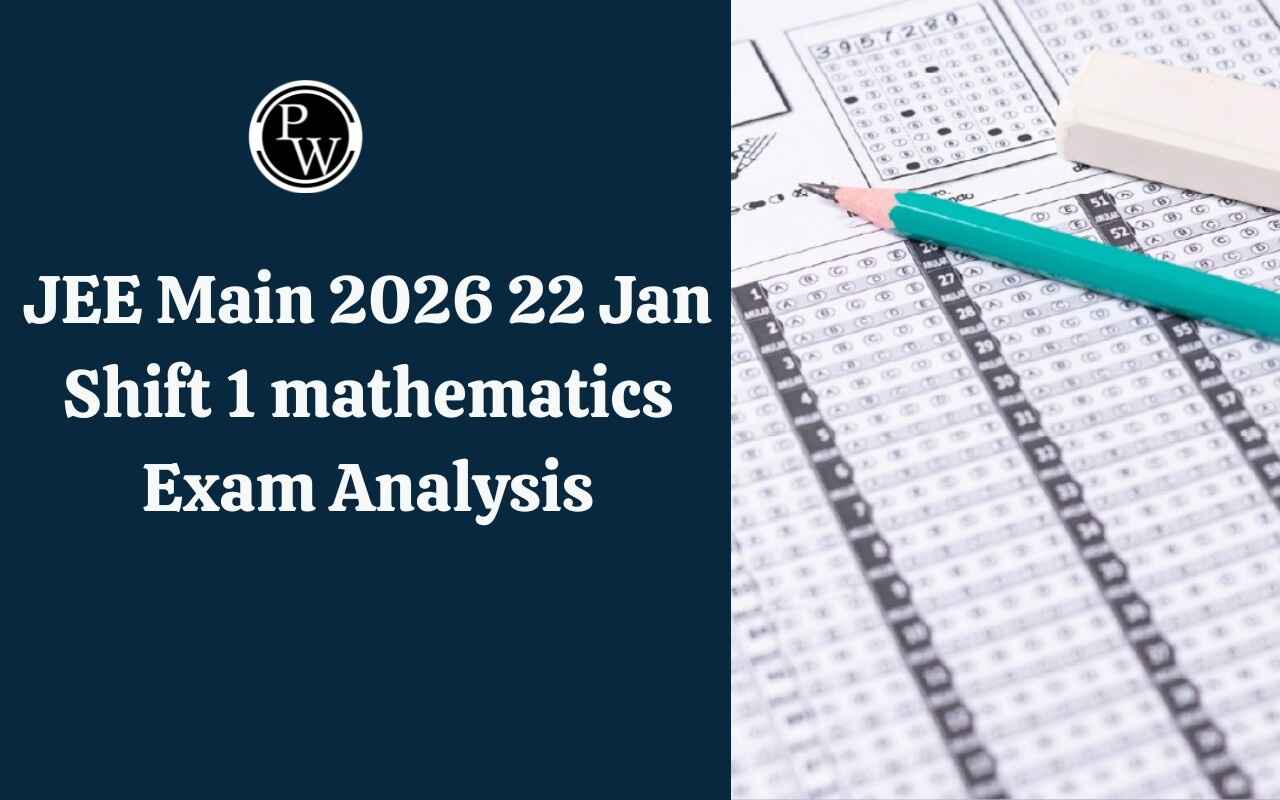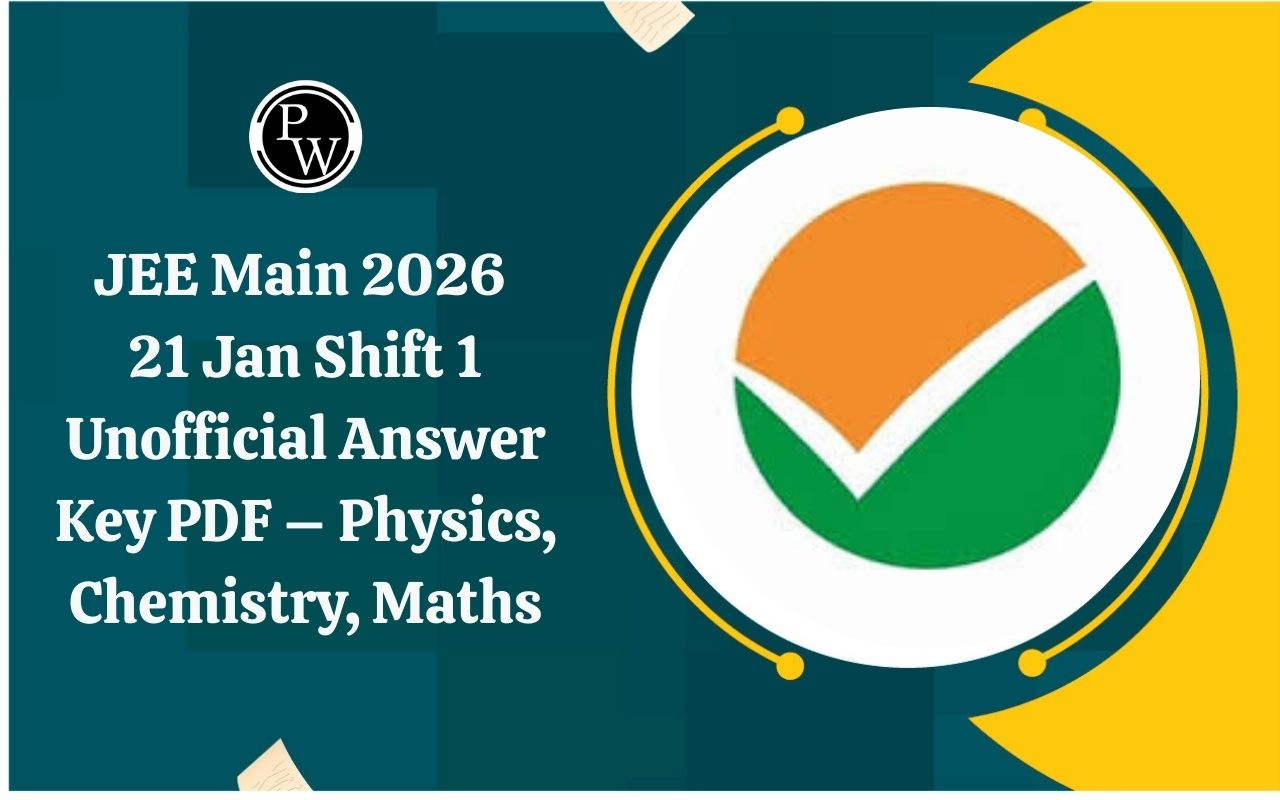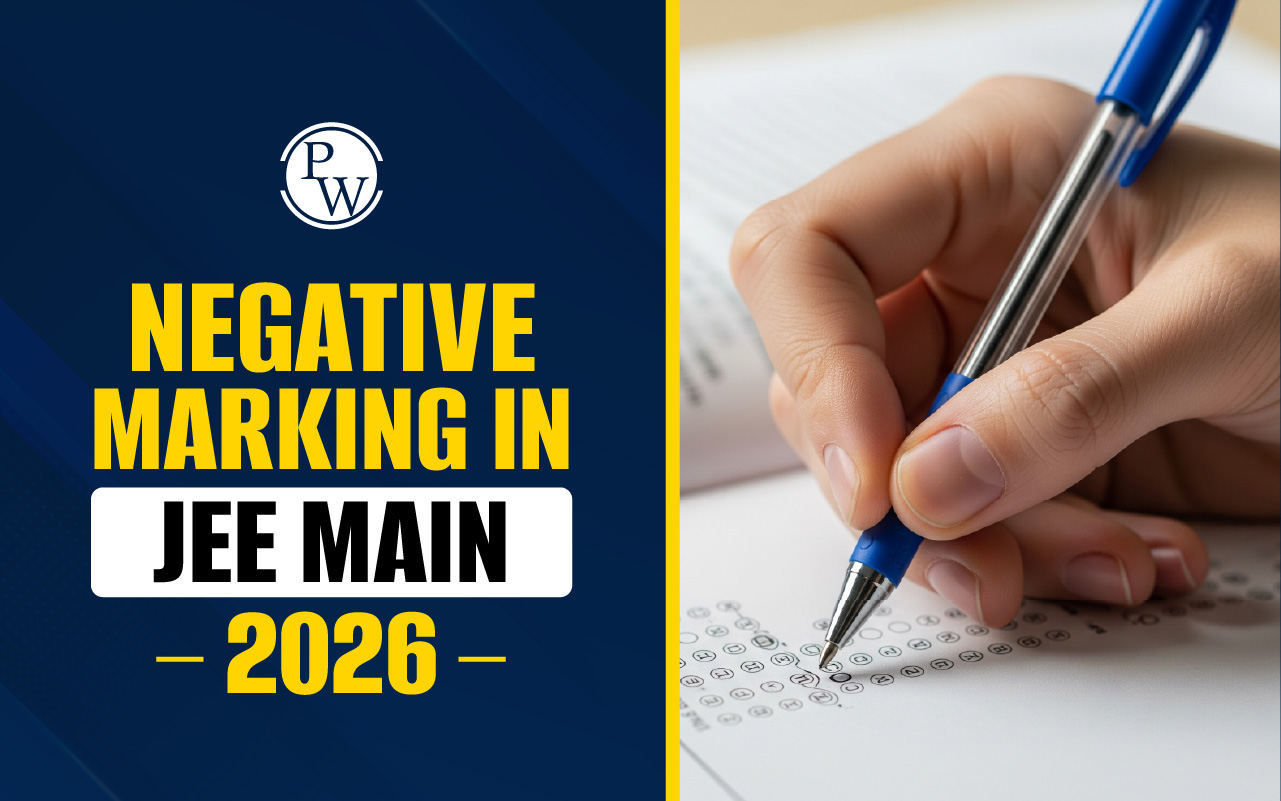
Last 10 Years Chapter-Wise Number Of Questions Asked In JEE Main : JEE Main is one of the most important entrance examinations for aspirants who want to get into top engineering and technology colleges in India. To prepare well for the upcoming JEE Main 2026, it is helpful to know the number of questions asked from each chapter in the past ten years of examinations. By understanding the JEE Main chapter-wise number of questions asked in the last 10 years, applicants can focus on important topics from where the majority of questions were asked in order to plan their study time better. This approach can improve their chances of scoring well in JEE Main 2026.
Last 10 Years Chapter-Wise Number Of Questions Asked In JEE Main
Scoring well in JEE Main 2026 needs not just hard work but also smart preparation. Understanding which chapters are more important can help students focus on topics that carry higher weightage in the exam. Analyzing the JEE Main chapter-wise number of questions asked in the last 10 years gives a clear idea of which topics are frequently covered. This helps applicants modify their study plan, tackle different question difficulty levels, and improve their overall score in the JEE Main April attempt.
Last 10 Years Chapter-Wise Number of Questions in JEE Main Physics
Analyzing previous years' question patterns helps in identifying the important chapters from the vast JEE Main Physics Syllabus. Based on the last 10 years of trends, questions from some topics in Physics have consistently appeared more often in the exam.
-
Modern Physics has had the highest number of questions, with around 80 questions asked over the last 10 years, making an average of 2.42 questions per year.
-
Around 71 questions were asked from Current Electricity, averaging about 2.15 per year.
-
Kinetic Theory of Gases and Thermodynamics has also been an important topic, with 60 questions in 10 years, averaging 1.81 questions per year.
-
Electromagnetic Field had 58 questions, with an average of 1.75 per year, while topics like Electrostatics and Rigid Body Dynamics each had 54 questions in the last 10 years, averaging 1.63 per year.
-
Geometrical Optics recorded 51 questions in the last 10 years of exams, making an average of 1.54 per year.
-
Electromagnetic Waves and Communication had 49 questions, appearing around 1.48 times per year.
-
Around 40 questions from Fluid Mechanics and Properties of Matter were asked in JEE Main exams in the last ten years, with an average of 1.21 per year.
-
Semiconductors had 38 questions, averaging 1.15 per year, while 37 questions were based on Electromagnetic Induction, appearing around 1.12 times per year.
Last 10 Years Chapter-Wise Number of Questions in JEE Main Chemistry
Reviewing previous Joint Entrance Examinations (Main) provides insight into the important chapters included in the Chemistry Syllabus for JEE Main. The chapter-wise number of questions asked in Chemistry in the last 10 years highlights that some topics have been repeatedly asked, making them important for the upcoming JEE Main 2026 exam preparation.
-
Transition Elements and Coordination Chemistry have been important topics, with 62 questions asked in the last 10 years, making an average of 1.87 questions per year.
-
Carbohydrates, Amino Acids, and Polymers have also been an important area, with a total of 61 questions, appearing approximately 1.84 times per year.
-
Stoichiometry, including Mole Concepts 1 and 2, has had 47 questions in the last 10 years, with an average of 1.42 questions per year.
-
Chemical Bonding has been another frequently asked topic, with 51 questions over the past 10 years, making an average of 1.54 questions per year.
-
Thermodynamics and Thermochemistry have had 43 questions, appearing around 1.30 times per year in the JEE Main exam.
-
P-Block Elements have also been part of the exam consistently, with 42 questions in the last 10 years, making an average of 1.27 questions per year.
-
Periodic Table and Periodicity in Properties have had 37 questions, appearing approximately 1.12 times per year.
-
Electrochemistry has been asked in JEE Main with a total of 35 questions in the last 10 years, making an average of 1.06 questions per year.
-
Colligative Properties have had 34 questions in the last 10 years, with an average of 1.03 questions per year.
-
Chemical Kinetics has also been an important topic, with 33 questions appearing in the past 10 years, making an average of one question per year.
Last 10 Years Chapter-Wise Number of Questions in JEE Main Mathematics
Understanding the number of questions asked from different chapters in the JEE Main Mathematics Syllabus over the last 10 years can help aspirants focus on important topics. Some chapters have been consistently asked more frequently, making them important to cover for effective preparation. Find out the number of questions asked from Mathematics in the JEE Main exam over the past 10 years here:
-
Vector has been the most frequently asked topic in JEE Main Mathematics, with 73 questions in the last 10 years, making an average of 2.21 questions per year.
-
Matrices and Determinants have also been an important part of the exam, with 65 questions in 10 years, averaging 1.96 questions per year.
-
Application of Derivatives (AOD) has had 56 questions, appearing around 1.69 times per year.
-
Sequence and Series and Definite Integration have both recorded 55 questions in the last 10 years, making an average of 1.66 questions per year.
-
Probability has been asked 41 times in the JEE Main exam, with an average of 1.24 questions per year.
-
Binomial Theorem has had 40 questions in the past 10 years, appearing around 1.21 times per year.
-
Straight Line and Differential Equation have each had 39 questions, averaging 1.18 questions per year.
-
Circle has been part of the JEE Main exam with 38 questions, making an average of 1.15 questions per year.
-
Complex Numbers and Limit of Functions have both been asked 34 times, with an average of 1.03 questions per year.
-
Mathematical Reasoning has had 33 questions in the past 10 years, making an average of 1 question per year.
-
Quadratic Equation-based questions have been asked 31 times in the previous year's JEE Main exams.
-
Statistics-related questions have appeared 30 times in the last 10 years, with an average of 0.90 questions per year.
-
Co-ordinate Geometry (3D)-related questions have been asked 29 times, making an average of 0.87 questions per year.
How to Score Well in JEE Main 2026 By Using the Last 10 Years' Question Trend?
Knowing the chapter-wise number of questions asked in JEE Main over the last 10 years can help in strategic preparation. Here is how aspirants can make the best use of this insight in order to improve their study plan for the JEE Main 2026:
-
Prioritize High-Weightage Chapters: Topics that have consistently had more questions in previous exams should be given more focus during JEE Main 2026 preparation. Subjects like Modern Physics, Chemical Bonding, and Vectors have appeared frequently, making them important for scoring well.
-
Allocate Study Time Effectively: Instead of spending equal time on all chapters, aspirants can divide their time based on the frequency of questions. Chapters with a higher number of questions should be studied in more depth, while low-weightage topics can be covered with a basic understanding.
-
Practice Topic-Specific Questions: Solving past year JEE Main questions from high-weightage chapters can help in understanding the type of problems asked. Regular practice of these questions improves problem-solving speed and accuracy.
-
Strengthen Conceptual Understanding: Frequently asked topics should be thoroughly understood conceptually. Many of these chapters, such as Electrostatics and Definite Integration, require a strong foundation to solve problems effectively in the exam.
- Revise According to Importance: While revising, aspirants should prioritize topics that have had a higher number of questions over the years. This makes sure that the most important chapters are revised thoroughly before the JEE Main 2026 attempt.
Last 10 Years Chapter-Wise Number Of Questions In JEE Main FAQs
Q.1. Which Chemistry chapter had the most questions in JEE Main over the last 10 years?
Q.3. Does JEE Main repeat questions every year?
Q.4. How many questions should I solve per chapter for JEE Main?
Q.5 : Which Physics chapter had the most questions in JEE Main over the last 10 years?


